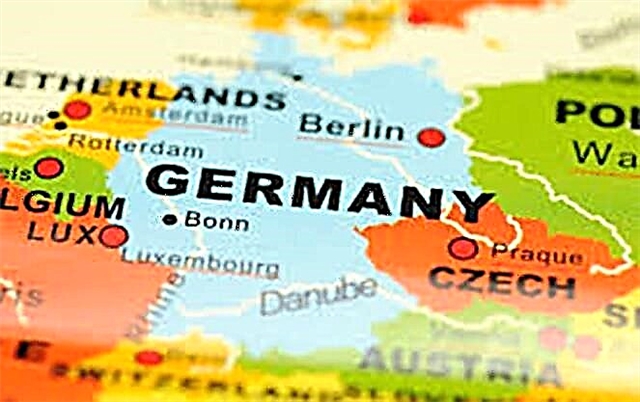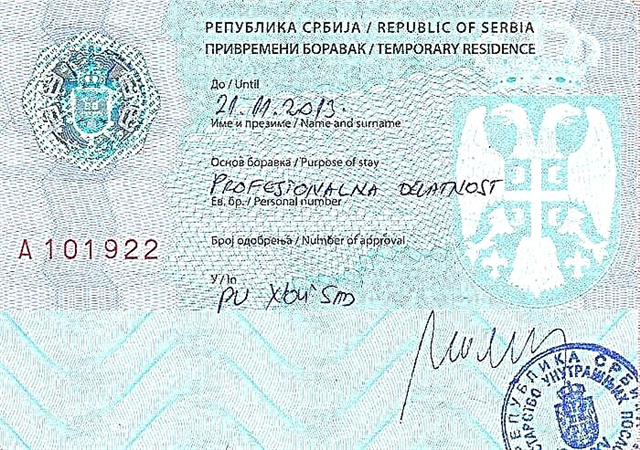The states of the European Union are in demand among migrants not only due to the high standard of living and economic stability. Almost all of them are known even in the farthest corners of the planet for the classical education system that unites the oldest and strongest universities in Europe. Not the last place in this list is occupied by German educational institutions, where most of the foreigners come as part of postgraduate programs. Master's programs in Germany are gaining more and more popularity every year, successfully adapting to the needs of students of all categories.
Types of universities
The education system in Germany is not uniform and unified. Despite the fact that the country has a mandatory law on education, each federal state is empowered to regulate this issue independently. Higher education institutions have freedom of action in terms of management and administration.
This means that each of them individually determines the areas of knowledge that students will master, develops programs and sets the criteria for selecting candidates for entrance exams. It is quite logical that this approach brings with it some difficulties for applicants, since before submitting documents, it becomes necessary to study the requirements of each university separately.
Universities in Germany that involve training in master's programs can be divided into 4 groups:
- Universities, including Technische Universität. This category represents full-fledged research centers with a huge number of specialties. Most of the universities are supported by the government. The total number is about 100 universities.
- Universities where you can study in applied sciences are Fachhochschulen. The main orientation of such educational institutions is practice. It offers degrees in engineering, business management, design and social sciences. A big advantage is the cooperation of such universities with companies and corporations, which make it possible on their basis to undergo internships, conduct research, and consult with the necessary specialists in the course of writing a dissertation. Today in Germany there are about 200 such universities. Among them are both public and private.
- Colleges of Music, Film and Visual Arts. Their approximate number is 50.
- Educational institutions focused on obtaining religious education.
Student mobility can be considered a great advantage of studying in a German master's program. This is due to the need for internships in other universities in order to exchange experience and expand the range of knowledge in their specialty.
How is Master's Degree Study Structured
Master's degree is the second academic stage in the learning process. It gives everyone the opportunity to gain knowledge in their chosen field in the course of training on a special course, the duration of which is 2-4 semesters.
After receiving a diploma, a graduate can stay in the academic environment in order to continue his scientific work and acquire the next status - Doctor of Science, and so on. And although a bachelor's degree in this country is considered a complete higher education, allowing you to get a prestigious job, some still continue their studies. Whether or not to receive a master's degree depends on the personal decision of each graduate. This does not affect hiring.
All master's programs are structured so that students choose a set of subjects for study at their discretion.
But this must be done with extreme caution. Many people give preference to subjects that do not take up a lot of time to study. In fact, the priority should be those that will be useful in future work and professional growth.
The schedule for the week will not be too busy. For example, it can contain only 1 lecture, 1 project and 2 seminars. But be prepared that preparing for them can take a lot of time and effort. In addition, the presentation of the results of the work done usually takes place in front of an audience.
It should be noted the complexity of how the process is built. The fact is that most of the program will be studied independently. This will have to devote several hours a day in the library, pore over textbooks and bring together the information received.
During the entire period of being trained, the student will have to undergo at least two practices. Most often, the right to choose a company and even a country belongs to him. After the completion of the last practical course, the date of the defense of the diploma project is set.
Universities in Germany, where you can get a master's degree, offer three types of study:
- Consecutive (konsekutiv) - implies that the student is studying in a specialty that he has already received earlier.
- The advanced training (weiterbildend) is suitable for those who graduated from the university a couple of years ago and have already gained work experience.
- Inconsistent (nicht konsekutiv) - partial change of specialization.
At the same time, not every institution can offer candidates for a master's degree the last two types of training. But the division into sequential training and inconsistent training has practically not been carried out recently.
What are the requirements for students
Only careful fulfillment of the requirements of your chosen university will allow you to become a student of a particular department. And although each of them has its own list of conditions, there are still some standards that must be met in all educational institutions:
- Foreign language proficiency - academic level - B2.
- Having a diploma of received higher education - a bachelor's degree.
- Good academic performance. The preference is given to those who studied at "excellent" and "good".
If we are talking about enrolling in a professional development course, then it will be necessary to confirm that the applicant already has 2-3 years of work experience in his profession, and he himself is a certified specialist.
Paid and free training basis
Study in Germany for Russians can take place both on a paid and free basis. Education at a state-owned university does not imply payment of fees. Private higher schools most often provide for the transfer of a certain amount for the received educational services.
But unpaid study at the university is only when it comes to a bachelor's degree and a specialization that is under the control of the state - engineering, law, teaching, pharmaceuticals, and the medical field. In contrast to the first, a second higher education may already be paid, regardless of which university you study at - private or public.
The first higher education in Germany is also considered the one that candidates who already have a bachelor's or master's degree want to receive, but it was issued by a university located outside the European Union.
Whether the study is free or paid, it also depends on the master's program:
- Sequential usually does not imply payment, since it is a logical continuation of an existing diploma.
- Inconsistent, too, is most often not paid for by students, but involves passing certain tests in some subjects.
- Further training is usually carried out on a paid basis.
In the latter case, the fee is charged regardless of whether it is a distance learning or full-time study at the university.
Choosing a language
The dilemma for admission is the choice of the language in which the training is to take place. Most universities teach in English, that is, it is not necessary to speak German in order to get the desired diploma. But even if you got on a course where teaching is in English, you still have to study a second foreign language. Among them, most often Italian, Spanish, French, German. The fact of mastering another language must also be taken into account when planning your curriculum, since this subject will take a lot of time.
At the same time, the list of specialties that an applicant can choose is significantly limited. Without knowledge of German, study is possible in the following areas:
- Business, economics, marketing, management.
- Tourist, hotel and event management.
- Law, politics and international relations.
- Communication and promotion.
- Accounting and finance.
- Computer science, IT development.
- Engineering, construction specialties and applied physics.
- Design and visual arts.
But the medical field, jurisprudence, natural and social sciences, architecture - those areas that can only be mastered by native speakers of the German language and candidates from abroad who are very good at it. If, after graduation, migration to Germany for permanent residence is planned, then a program with German as the language of instruction will be the best choice.
How to proceed
Before enrolling in a master's program in Germany, you must have a diploma from a domestic university with the required degree of accreditation. Otherwise, your education in Germany will be equated to a complete secondary education, and you will have to study for another two years at an accredited educational institution in your home country or at the Studienkolleg, a pre-university training college.
The issue of establishing quotas for the admission of foreign students is of great importance. Whether they exist or not, each university determines independently. In some, such a restriction is completely absent, while others accept no more than 5-10% of foreigners. Please note that you will be a foreign applicant even if you receive a bachelor's degree in Germany.
The admission criteria will depend on the type of study envisaged. If consistent and inconsistent, this will be the GPA in the previous diploma.
The higher the number, the more likely you are to get a place among students. The lower limit is an estimate of 2.5 points, which corresponds to the domestic "four". And for those who intend to improve their professional level, the already acquired experience and motivating factors will be decisive.
Package of documents
Enrollment in the ranks of students for a master's degree takes place here twice a year - in winter and summer. Accordingly, documents can be submitted before starting any of the receptions. You will need:
- Bachelor's degree diploma.
- Recommendations from the first university.
- Diploma supplement indicating the number of hours listened and marks.
- Motivation letter.
- Biography.
- Certificate of passing the language testing: TestDAF, DSH - for admission to faculties, where the presentation of subjects is in German, IELTS, TOEFL - where in English.
- Portfolio (for admission to creative specialties).
The deadline for submission of documents depends on the university you have chosen. Do not forget that the exact list of papers should be found out at the selection committee. In different cities and even educational institutions, it can vary significantly.
Cost of education
Even if a free master's program in Germany turns up, you still cannot avoid a semester fee, which is paid throughout the course of study. It is compulsory for all students; the form of education does not play a role. The amount of the contribution depends on the university itself. For example, we will give some data in the table:
| Educational institution | Payment in euros for 1 semester |
|---|---|
| Heidelberg University | American Studies - 2,500 Medical sector - 6,000 |
| Free University Berlin | Applied Literature - 500 Public health - 1,200 |
If we talk about paid education, at the University of Erlangen-Jungen, 2 years of multimedia didactics will cost 5,000 euros for the entire course, and 8 months at the Faculty of Marketing Management will cost 11,250 euros. At the same time, the Higher School in Hamburg will ask its students for about 14 thousand euros for 4 semesters of study in the field of applied sciences.
Preparation for admission
Applying to a German institution of higher education can be challenging. On the one hand, you don't have to take any exams. Enrollment is carried out on the basis of the average diploma score, which is already in hand. What then could be the problem? As practice shows, this can be the level of language proficiency and some differences in the education system itself.
The most effective way to become a master's student is language courses. Even if you are fluent in German, this does not mean that your level is academic, which is declared by all universities. Its main difference from the spoken language is that the academic level allows you to freely process scientific articles - to read, translate, write in a scientific language.
Recall that Germans go to school for 13 years, and Russian children - 11. Accordingly, admission to a university happens in the life of graduates in the Russian Federation 2 years earlier than in Germany.
In order for the degree of knowledge in the acquired specialty to meet the German criteria, you will have to complete pre-masters - preparatory courses for future masters.
Most often, the preparation of the required format is offered by the educational institution itself, to which admission is planned. Its price is not included in the cost of training. But you still have to spend money on it, since this may be one of the requirements of the university.
The issue of housing and work for students
All who have received the opportunity to study in Germany have the right to live in a hostel intended for students. To do this, you will have to fill out an application at the time of submission of documents. But it is best to do this in advance, since there may simply not be places on the campus. If you find a room, you will need a certificate to check in that you were accepted into the ranks of students.
Accommodation information is available from the Department of International Relations, which you can find at each university. The employee of the service is obliged to provide you with the necessary advice on the placement of students.
If it is not possible to get university housing, you will have to rent it yourself or in cooperation with fellow students. But in this case, you need to be prepared for more significant spending.
An important advantage is the ability to work during the course of study. But students are given no more than 20 hours a week for this. If you want to work more, you will need a special permit. If you manage to find a job in your specialty, the permit will be issued without any particular difficulties. The average earnings for students in this country is 7 euros per hour.
Employment of graduates
Almost all educational institutions have career centers that allow those who wish to find a suitable employer. Fairs also play an important role, where companies and enterprises of the country can choose a suitable young specialist.
The areas in demand where it is easiest to engage yourself with the appropriate diploma are:
- biotechnology and genetics,
- marketing and finance,
- multimedia business and IT technologies,
- medicine,
- engineering specialties of all directions.
Those who have decided to connect their lives with industry, which are largely developed in Germany, also have prospects.
Popular universities
The list of universities offering master's programs will help to determine the choice of educational institution:
- University for Media & Communication. One of the largest universities in the country, branches of which are represented in the following cities: Stuttgart, Berlin, Munich, Milan, Hamburg, Cologne. Duration of training is 1.5 years. The cost is 7,400 euros per semester.
- Europa Universität Viadrina Frankfurt (Oder). Assumes the passage of programs in two languages. No payment will be charged, except for the fees for room and board.
- University of Göttingen. The largest and oldest university in the Lower Saxon state. He specializes in scientific research.
- SRH University of Heidelberg. Here they teach in specialties in such areas as sports management, art, natural sciences.
- Fachhochschule der Wirtschaft. Those who intend to obtain a master's degree in a technical or information field come here. Payment - 600 euros per month. The duration of the course is 31 months.
Summing up
The dream of getting a high-quality European education today is not so unrealizable. Having received a bachelor's degree in their home country, graduates can continue their studies in Germany, where they can become the owner of a diploma for free or for moderate semester fees.
Things to remember upon admission:
- Applicants can choose the language of instruction and the subjects they want to study. Many universities teach in English. But if you are planning to stay in the country, it is better to find a program in German.
- The package of documents requires a certificate of passing the test for proficiency in the academic level of the language.
- Exams are not provided in most universities. Enrollment is carried out on the basis of marks in an existing diploma.
- Students of master's programs have the right to work, and after graduation, they can successfully find a job at a German company.
Particular attention should be paid to the choice of a university that will provide not only a high level of knowledge, but also support your future career with its reputation.











